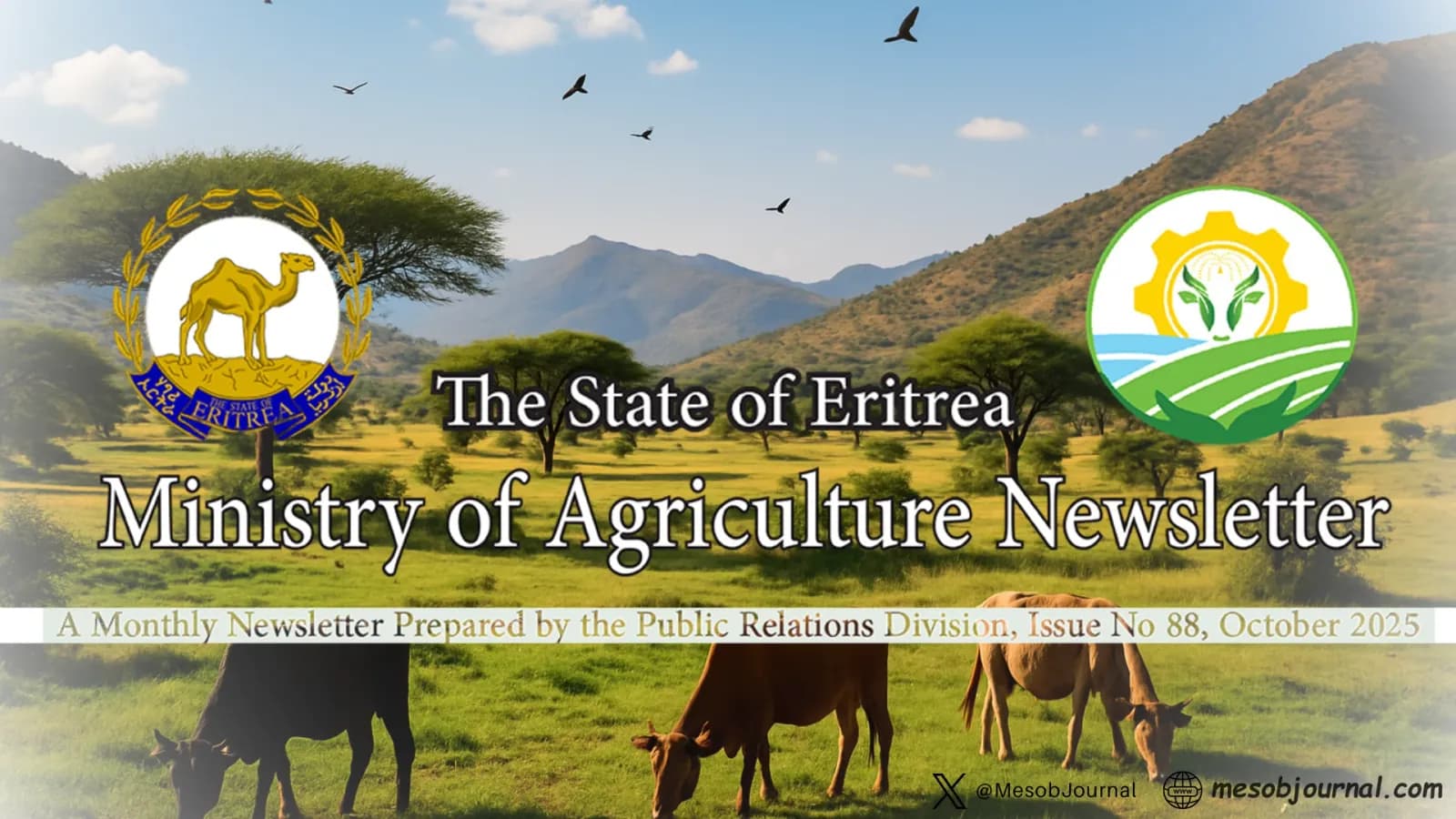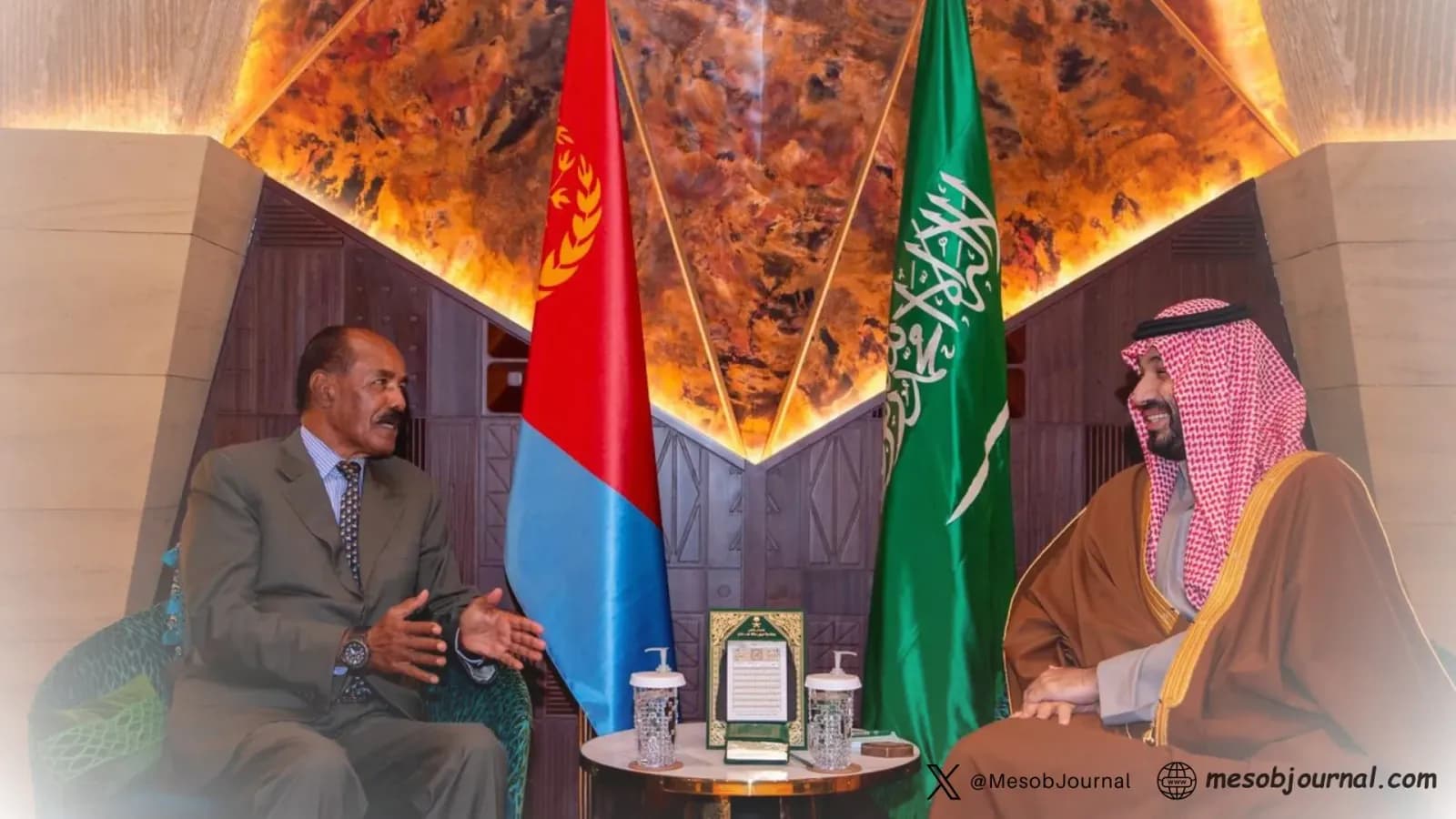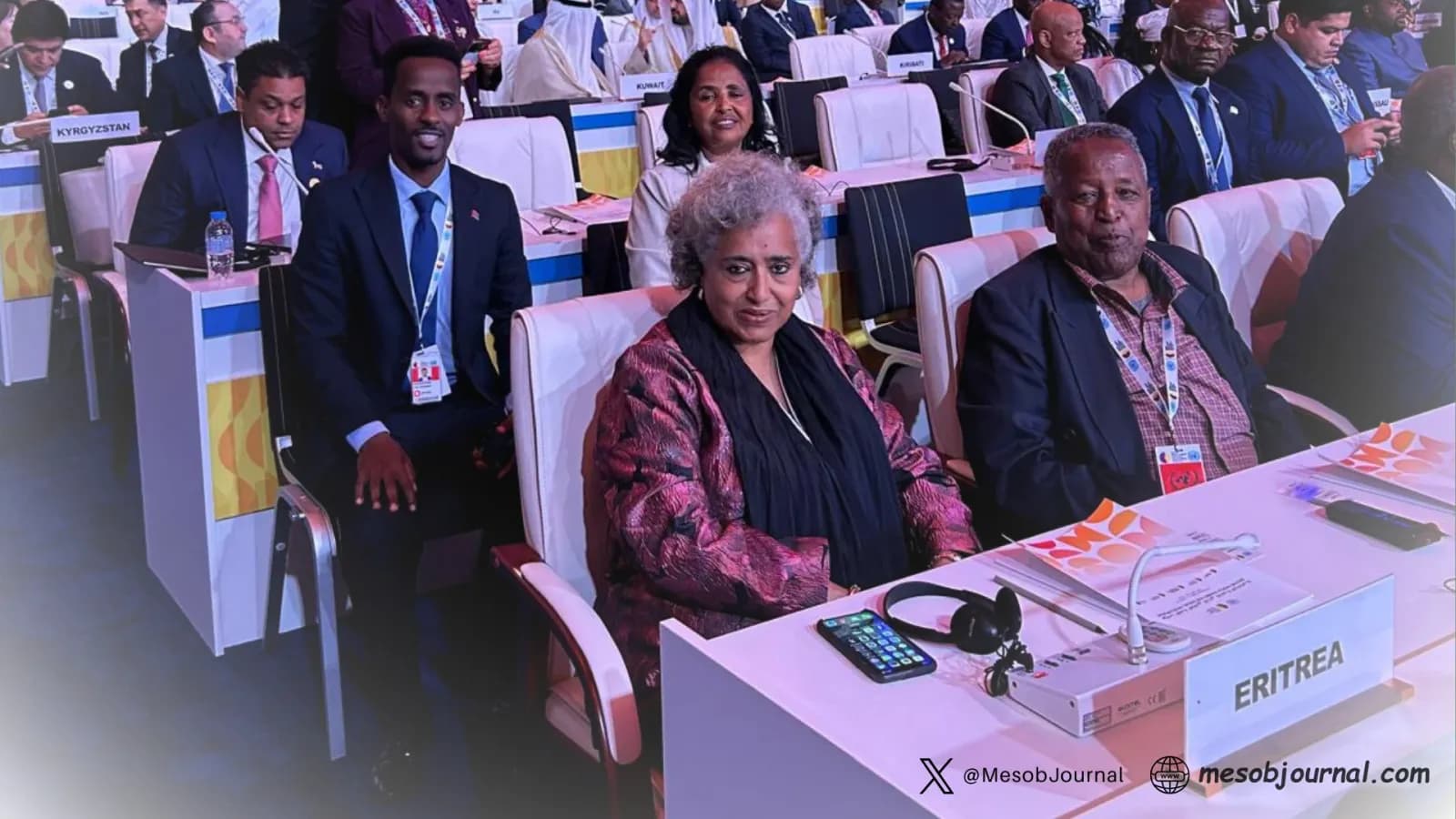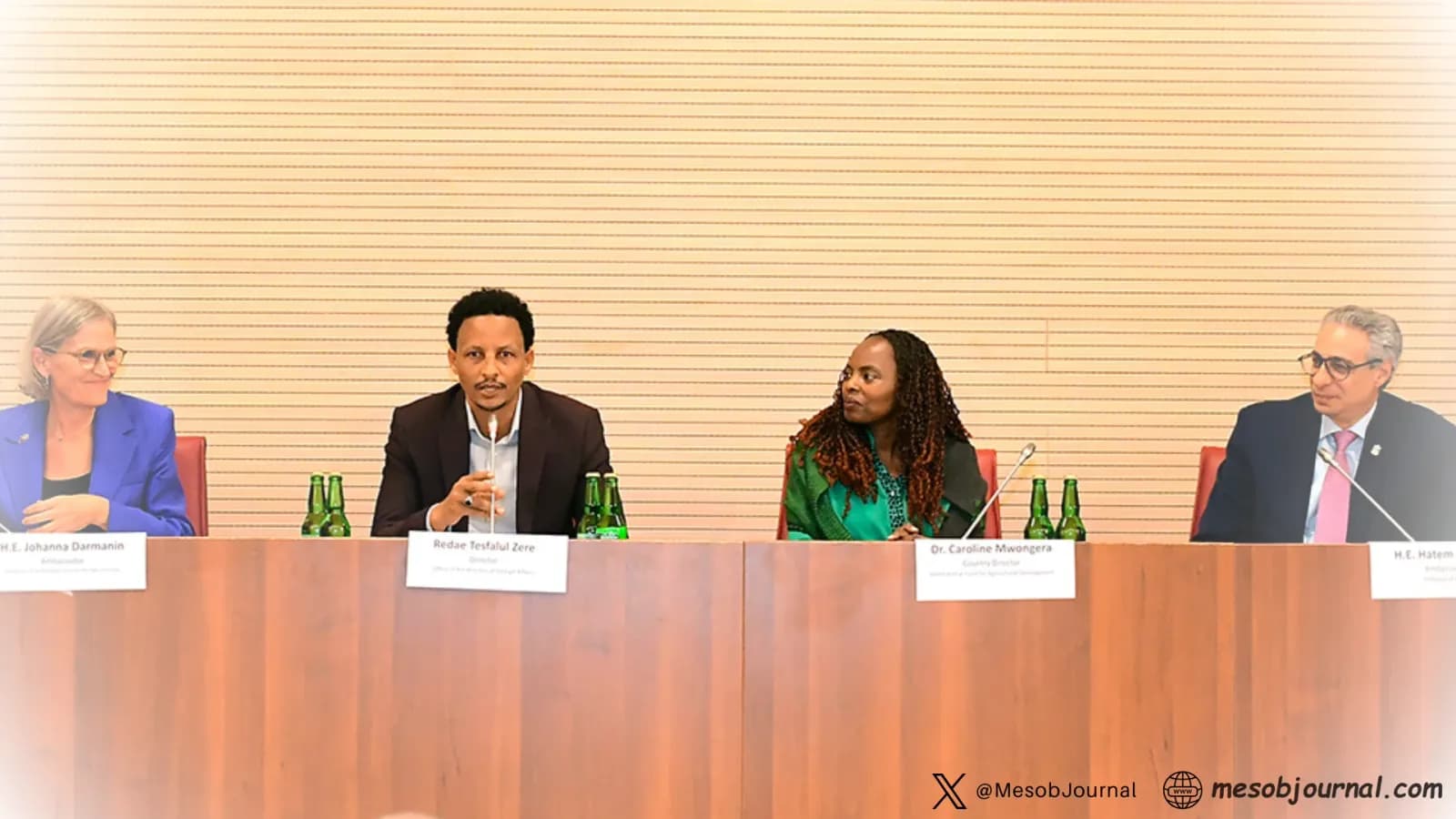Eritrea Charts a Green Future: National Drive to Safeguard Fauna, Flora, and Food Security

Eritrea’s environmental and agricultural leadership took center stage in October 2025 with a series of landmark events that underscored the country’s deep commitment to biodiversity, sustainable farming, and public health. Through national conferences and seminars convened by the Ministry of Agriculture (MoA), experts, policymakers, and scientists mapped out a forward-looking agenda: conserve Eritrea’s natural heritage, protect its ecosystems, and secure safe, nutritious food for all.
National Conference on Fauna and Flora: Science in Service of Heritage
Under the theme “Conservation of Eritrea’s Fauna and Flora Safeguards Our Future,” the National Conference on Fauna and Flora brought together senior officials, researchers, and international partners at the National Confederation of Eritrean Workers (NCEW) Hall in Asmara.
Director General Mr. Tekleab Mesghena of the MoA highlighted that the gathering marked a “milestone in Eritrea’s conservation journey,” citing the collective work of institutions that have, over five years, documented over 5,000 species of terrestrial and aquatic flora and fauna — now catalogued in a national biodiversity database.
Representing the Minister of Agriculture, Mr. Amanuel Negassi emphasized that Eritrea’s fauna and flora are not only environmental treasures but also pillars of national identity and long-term economic resilience. He called for stronger enforcement, research collaboration, and sustainable resource management to protect these assets against threats such as habitat loss and climate change.
Speakers from the Ministries of Marine Resources, Land, Water and Environment, and the National Higher Education and Research Institute all reinforced the same principle: that nature conservation is national self-reliance in action.
Mr. Tewelde Kelati, Minister of Marine Resources, reminded participants that “marine ecosystems are an inseparable part of Eritrea’s biodiversity,” urging continued documentation and rehabilitation efforts.
Colonel Kinfe Habtom, General Manager of the Forestry and Wildlife Authority, praised the creation of the national database, describing it as a foundation for modern ecological governance. He called for stronger community engagement, noting that “protecting biodiversity begins with informed citizens.”
The discussions culminated with Mr. Tesfay Gebreselasie, Minister of Land, Water and Environment, unveiling preparations for the National Biodiversity Strategy and Action Plan (2026–2030) — a roadmap for coordinated protection, restoration, and sustainable use of Eritrea’s ecosystems.
The conference closed with interactive group sessions linking scientists, policymakers, and local representatives. The shared message: Eritrea’s biodiversity conservation is not a policy slogan — it is a collective responsibility backed by data, law, and community spirit.
Organic Agriculture: The Next Frontier for Food Security
Later in the month, the MoA hosted a Seminar on Integrated Organic Agriculture Practices under the banner “Organic Farming for Safe and Nutritious Food Production.” The event, held at Mai-Nefhi, showcased how Eritrea is advancing from traditional farming toward eco-smart, chemical-free production systems.
Mr. Semere Amlesom, Director General of the Agricultural Extension Department, opened the seminar by stressing the need for a “food system that feeds without destroying.” He warned that synthetic fertilizers, while productive in the short term, can degrade soils and groundwater, making organic alternatives not only safer but more sustainable.
Mr. Natnael Habtemicheal, chair of the organizing committee, presented the country’s growing body of research in organic agriculture, while Mr. Temesgen Ghebremeskel from the Ministry of Marine Resources spoke of innovations that merge land and marine ecosystems — such as Eritrea’s pioneering use of seaweed liquid fertilizers and fish-based amino acids.
Presentations from the National Agricultural Research Institute (NARI) and colleges across the country covered topics like:
- Eco-friendly pest control using botanical extracts
- Comparative compost quality analysis
- Natural fertilizers from plant waste and animal dung
- The impact of bio-fertilizers on soil chemistry and crop yield
In his closing remarks, Mr. Alemesged Asghedom, Advisor to the Minister of Agriculture, called for continued research and inter-institutional cooperation, describing organic agriculture as “the bridge between environmental integrity and national food sovereignty.”
World Rabies Day 2025: A Call to Protect Every Community
The MoA capped the month with World Rabies Day, held under the theme “Act Now: You, Me, Community.” The campaign focused on strengthening collective action to eradicate rabies in Eritrea — a disease long recognized as a silent but preventable killer.
At the national event in Asmara, Mr. Semere Amlesom commended Eritrea’s remarkable progress in canine vaccination over the past decade, noting that awareness and cooperation between the Ministries of Agriculture and Health have saved countless lives.
Panel discussions included contributions from veterinary experts, legal advisors, and representatives from social services — all emphasizing the importance of sustained vaccination, early detection, and humane animal management.
Closing the event, Dr. Yonas Woldu, Chair of the technical committee, urged the public to maintain vigilance: “Rabies prevention is not a one-day campaign — it’s a continuous national responsibility.”
A Broader Vision: Conservation as Nation-Building
Taken together, the October 2025 initiatives highlight Eritrea’s strategic approach to environmental stewardship — one that sees conservation not as a donor-driven checklist, but as a sovereign duty.
From rehabilitating habitats to promoting organic food systems and public health, these programs illustrate a holistic understanding: that a healthy nation depends on healthy ecosystems.
As Eritrea builds its scientific capacity and nurtures a culture of sustainability, it sends a clear message — that protecting nature is not an act of charity but an investment in the nation’s endurance.
Related stories

REDISCOVERING ERITREA: A UN Resident Coordinator’s Testimony of Progress and Potential
In a world crowded with assumptions and secondhand narratives, firsthand testimony matters. Over the past two years, the United Nations Resident Coordinator in Eritrea has offered exactly that: a grounded, lived account of a country often discussed from afar but rarely understood

Riyadh Signals a Strategic Reset: President Isaias and Crown Prince Mohammed Bin Salman Hold High-Level Talks in Saudi Arabia
When President Isaias Afwerki arrived at Al Yamamah Palace on Wednesday afternoon, the tone was clear from the outset: this was not a ceremonial courtesy call, but a strategic conversation between two states that share more than a stretch of the Red Sea. Eritrea and Saudi Arabia —

Eritrea urges reform of an unequal global order at Doha Social Summit
Eritrea has urged the international community to confront what it described as “structural injustices” in the global development system, warning that social progress cannot flourish under conditions of dependency or inequality. Addressing the Second World Summit for Social Develo

Eritrea and the UN: A New Language of Partnership
Why the UN’s approach in Asmara may be the most important development story Africa isn’t talking about. The hall at the National Confederation of Eritrean Workers was full, alive with an energy I hadn’t felt before at any event hosted by international partners in Asmara. The even

